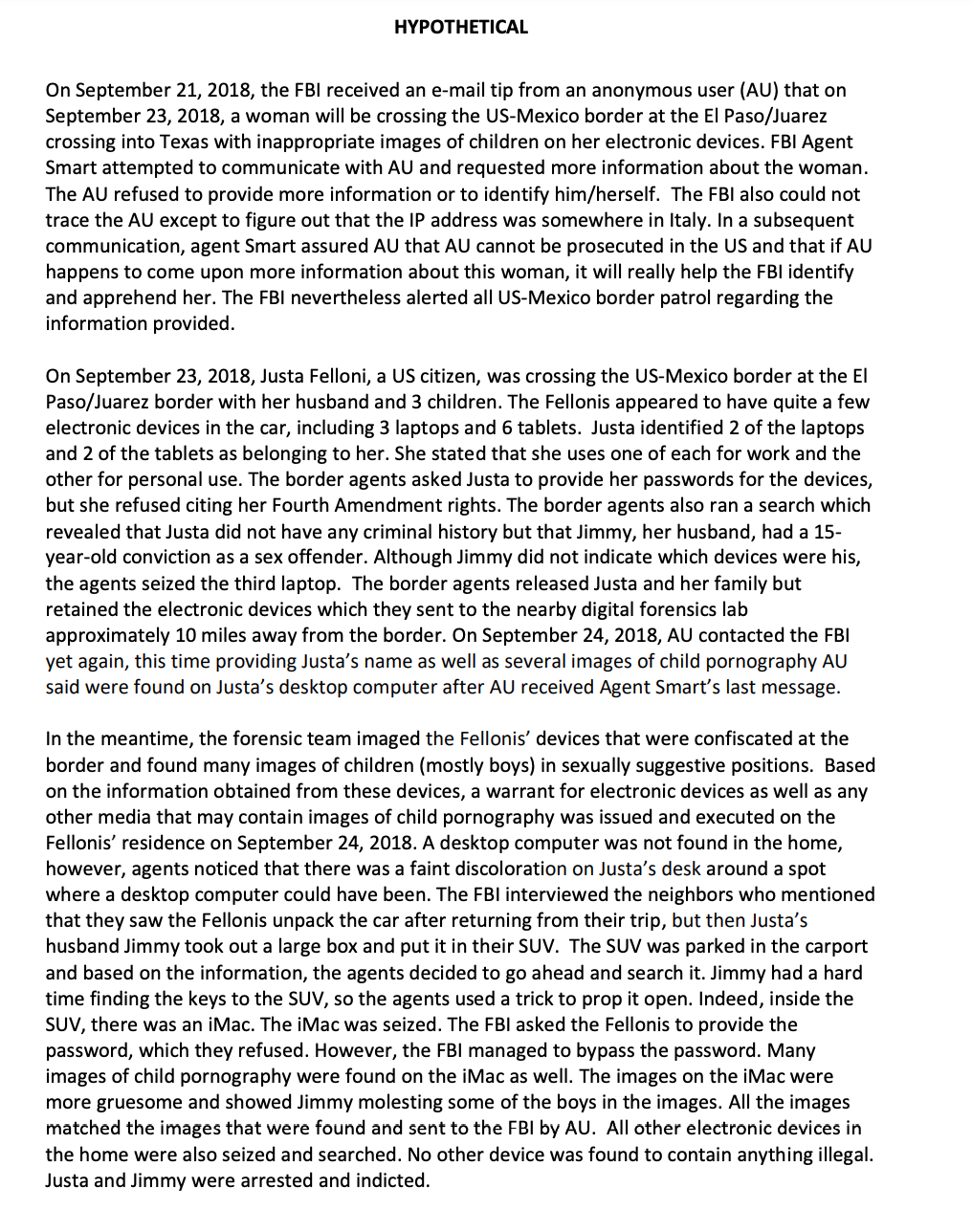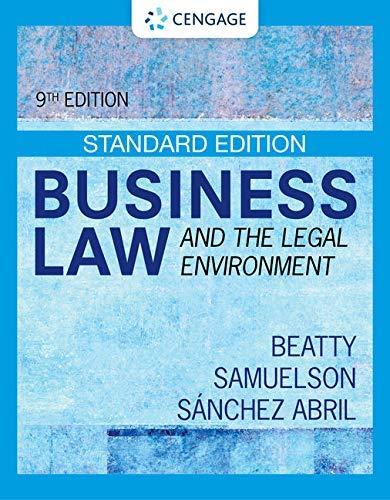Question
Please read the following case provided in the screenshot below and try to figure out all the issues and arguments from both the Prosecution and
Please read the following case provided in the screenshot below and try to figure out all the issues and arguments from both the Prosecution and Defence's point of view. And mentioning those issues and arguments please help me with the relevant issues here and how would they be approached and resolved. please explain arguments that both the defense and the government may present; what section(s)
you need to speak from the defendants' and prosecutors' points of view. Identifying the issues and analyzing those
.
I am also Attaching the outline of things fro reference
OUTLINE
- Fourth Amendment (Define)
- Unreasonable searches and seizures by Government Agent (Presumed reasonable if there is a warrant)
- Requirement of Government Agent
- 2 Factors (US v. Jarrett - unknown user case)
- But permissible to reenact private search
- 2 Factors (US v. Jarrett - unknown user case)
- Exceptions (for each define and know the requirements)
- Auto
- Plain View (See below under Electronic Search Stage)
- Exigent Circumstances (US v. Trowbridge)
- SPLAWD
- Exigent circumstances searches must be strictly circumscribed by the exigencies which justify their initiation
- Border (level of suspicion for forensic searches)
- Particularized suspicion for computer/forensic search (US v. Cotterman)
- Other circuits
- Homeland security manual
- Search Incident to Lawful Arrest
- What about electronic devices? (Riley v. California)
- Consent
- Scope (US v. Al-Marri)
- When valid? Voluntary/knowingly
- Who must consent?
- Third Party (US v. Buckner)
- Apparent Authority (US v. Andrus)
- Special Needs - Government Workplace Searches
- When permissible? (Leventhal v. Knapek)
- Stop & Frisk
- What level of suspicion?
- What is permissible?
- Warrant Requirements
- Probable Cause (define) (United States v. Griffith)
- Oath/affirmation
- Particularity (United States v. Ulbricht)
- Particularly describing places to be searched/things to be seized
- Requirements?
- Neutral/detached magistrate
- Electronic Searches
- Physical Search Stage (US v. Hill)
- What's included?
- Electronic Search Stage
- Plain View? (US v. Williams)
- Remember circuits disagree!
- Plain View? (US v. Williams)
- Physical Search Stage (US v. Hill)
- Ex Ante Restrictions on Warrants (In Re Cunnius)
- What's permissible/Where/Agreement amongst circuits?
- Requirement of Government Agent
- No warrant/exception -> ER unless
- Good Faith
- Independent Source
- Inevitable Discovery
- What is a search?
- Physical Realm
- Virtual Realm
- REP (define - remember Katz telephone booth case)
- Searches of standalone computers (US v. David)
- Remember to read and understand the examples of application of this rule in other circuits/cases in slides
- REP in physical movements so need a warrant to get info from carrier (Carpenter v. US)
- Non-Content Information (US v. Forrester)
- Content Information (US v. Warshak)
- Remember to distinguish as not all circuits in agreement
- What is a seizure?
- Taking pictures of information may constitute a 'seizure" because it freezes information in that form (US v. Jefferson)
- Unreasonable searches and seizures by Government Agent (Presumed reasonable if there is a warrant)
- Encryption (define/requirements)
- Usually a Fifth Amendment Issue (In Re Subpoena Duces Tecum)
- Exceptions?
- Physical Act
- Foregone Conclusion.

Step by Step Solution
There are 3 Steps involved in it
Step: 1

Get Instant Access to Expert-Tailored Solutions
See step-by-step solutions with expert insights and AI powered tools for academic success
Step: 2

Step: 3

Ace Your Homework with AI
Get the answers you need in no time with our AI-driven, step-by-step assistance
Get Started


